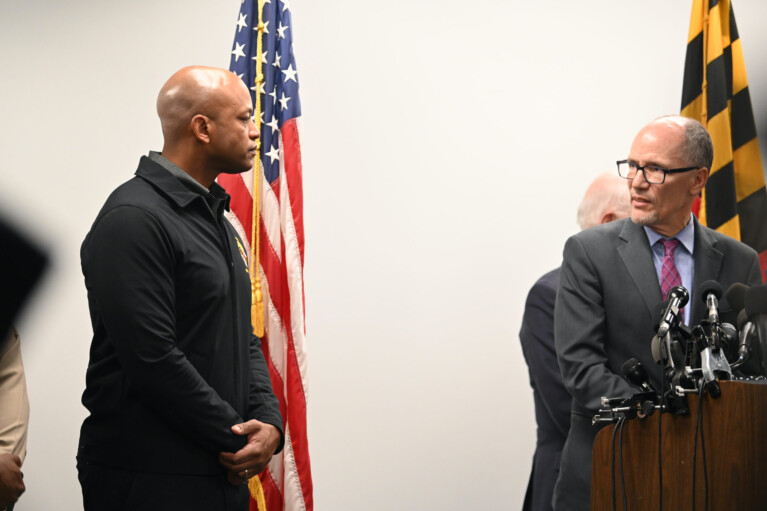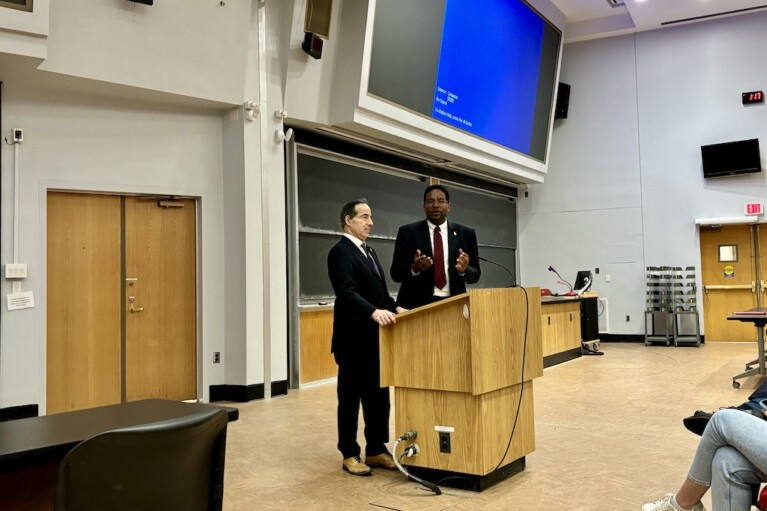Maryland, we’ve got a problem.
Let’s talk about the way we vote and how we allow winners to take office without earning a majority of the vote.
Why do we need to improve the way we vote?
The recent special election for the 7th Congressional District seat is the latest example. Two dozen candidates ran for the Democratic nomination and eight candidates ran for the Republican nomination to fill the 7th Congressional seat that was held by Elijah Cummings, who died in October. The candidates who finished on top in the Democratic and Republican primaries won with roughly 43% and 40% of the vote, respectively, in an election with about 20% turnout.
Some may see the number of people running for the same seat as the problem, but it’s not. That kind of thinking is what pressures candidates to drop out — not because they don’t offer unique ideas or perspectives, but because they would “spoil the election” for someone else. Somehow we are OK with blaming people instead of blaming a faulty system that splits votes among like-minded candidates and produces winners who did not draw a majority of voters.
We can do better and the way is with ranked choice voting.
In a ranked choice election, voters rank their preferred candidates in order (first, second, third, and so on). Voters’ first choices are counted and, if a candidate earns a majority, that candidate wins. But if no candidate earns 50% of first-choice votes, then the candidate in last place is eliminated and voters who ranked that candidate as their first choice have their next choice counted in. This continues until a candidate reaches a majority. It’s like an instant runoff without the added cost.
Ranked choice voting ensures that a majority of voters elect a candidate, that all voters have their voices heard, and that no candidate “spoils” the election.
Is this voting method new in Maryland? Not at all. Residents in Takoma Park have been using it for more than a decade and many local, state, and national leaders support ranked choice voting — including U.S. Rep. Jamie Raskin (D-Md.). Maine started using ranked choice voting in congressional elections in 2018. Utah approved a pilot program, running through 2026, that allows cities to opt for ranked choice voting. New York City just voted to adopt ranked choice voting for city elections, starting with the mayoral primary in 2021. Across the country over two dozen jurisdictions use ranked choice voting.
Ranked choice voting works. It eliminates the spoiler effect and non-majority winners. It gives women and candidates of color a stronger opportunity to run and win. Recent studies show that cities that use RCV have a higher number of women and people of color in elected office compared to 100 of the most populous cities in the U.S. Most importantly, it empowers voters to have the strongest voice by giving them the power to rank instead of limiting them to one candidate.
The General Assembly is now considering an important bill, SB 89, to update our voting methods to include ranked choice voting. Maryland’s voting equipment lease expires in 2021 and Maryland needs to prioritize updating our elections for today’s and future voters. The bill does not mandate that any jurisdiction use ranked choice voting, or any other voting method, but enables local governments to implement election systems that work best for their communities. In Baltimore City, Councilmember Bill Henry has introduced legislation for the city to use either ranked choice voting or open primaries for city elections.
In countless elections at city, county, state, and federal levels we’ve seen non-majority winners, split votes and overlooked voters. We’ve heard voters grumble that there are too many candidates and that having too many choices denies viable candidates the opportunity to lead because voters had to pick the right one. Our response can no longer be to blame individuals instead of outdated systems that don’t reflect the needs of our communities — especially in a state with no women members of Congress and few women in statewide or municipal offices.
It’s time for all Marylanders to have the ability to use a proven voting method that gives voters a stronger voice and better choices. It’s time for ranked choice voting.
— MICHELLE C. WHITTAKER
The writer is an electoral reform and campaign expert. As statewide coordinator for RCV Maryland, she mobilizes advocates in support of local and state legislation to bring ranked choice voting to Maryland elections. She also serves on the board of Represent Women, a national organization working to increase gender parity across all levels of government.




 Creative Commons Attribution
Creative Commons Attribution